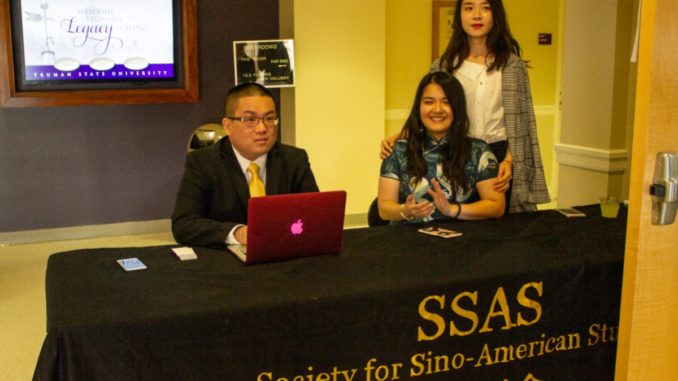
The Society for Sino-American Studies did not receive funding from the Funds Allotment Council for its 2020 Chinese New Year celebration and had to charge attendees for the first time in the event’s history.
The event, which happened Feb. 23, was funded by Student Government, the Center for International Students and ticket sales. SSAS President Youxing Yang also started a GoFundMe campaign, but the event still fell short of last year’s budget and attendance. Last year saw over 300 attendees while this year’s attendance reached just over half of that with about 160 people.
Yang said Student Government gave $650, CIS gave $200 and ticket sales reached about $960 with each ticket costing $6. He said the biggest cost is typically food, but posters and decorations are a significant part of the event budget, as well.
Yang said the email he received from FAC, which informed him that SSAS’s event had not been approved for FAC funding, cited two reasons for the rejection: lack of diversity and lack of available funding. He said he was surprised and angry about the lack of diversity being a reason.
“There are people in FAC who have gone to our event and if they remember our event, we usually have about four to six performances and usually only one is a Chinese faculty or student performance,” Yang said.
Two organizations received funding this semester for cultural dinners. The International Club received $5,000 for its International Dinner and the Jewish Student Union received $880 for its Shabbat dinner.
FAC Treasurer Mary Hansen said she did not send the email that Yang received, but diversity was not a factor in FAC’s decision to deny funding to SSAS.
Hansen said when organizations apply for funding from FAC, they must submit an application and then attend a hearing with FAC. At the hearing, FAC members ask organization members what minimum amount of money is needed for the organization to successfully put on its event. If during FAC’s decision making process the amount FAC can fund falls below that minimum, Hansen said they have to deny the organization’s request.
“With SSAS in particular, they requested almost $5,000 — a little under — and they said they needed $4,800 in order to put the event on successfully, so by the time we made it to the third round [of deliberation] they had fallen below that $4,800 minimum,” Hansen said.
Hansen said it was a difficult decision to deny SSAS’s request because she wonders if the $4,800 was a correct amount, but FAC has to make decisions based on what is written on the application and what is said during the hearing.
Yang said next year SSAS will likely ask for half the amount of what they asked for this year in hopes of increasing its chance of receiving FAC funding, because any amount of money is better than no money.
